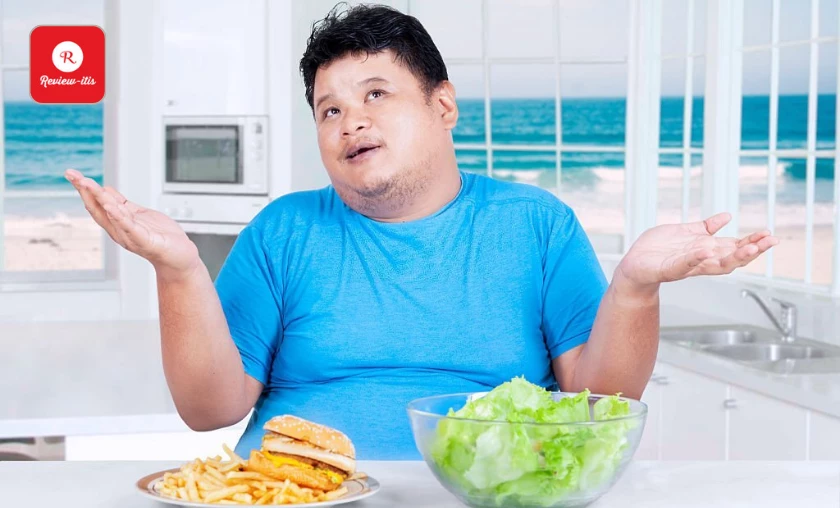Let’s talk about Nutrition for weight loss and health. I want to start by saying that weight loss isn’t always the answer to every health issue…
However, if your doctor recommends it, there are tips and tricks you can follow to lose weight safely and effectively. For the most successful long-term weight management, it’s recommended to have a steady weight loss of 1 to 2 pounds per week.
But here’s the thing: many eating plans designed to help you lose weight can leave you feeling hungry or unsatisfied. Some even cut out major food groups and need to be more sustainable in the long run. This can make sticking to a healthier eating plan challenging.
Don’t worry, though! We all have unique needs and different eating styles. What works for someone else may not work for you, and that’s completely fine. Experimenting with different tips and finding what works best for your body is important.
So keep an open mind, be kind to yourself, and remember that your health journey is unique to you.
Table of Contents
Nutrition for Weight Loss: How to Lose Weight in Just 3 Simple Steps:

1. Cut Back on Refined Carbs.

If you’re looking to lose weight quickly, one the way to do it is by cutting back on sugars and starches, which are types of carbohydrates. This can be achieved through a low-carb diet or by swapping refined carbs for whole grains.
When you do this, you’ll likely find that your hunger levels decrease, leading you to consume fewer calories overall (1 Trusted Source). With a low-carb diet, your body will switch to burning stored fat for energy instead of carbs.
Choosing complex carbs like whole grains combined with a calorie deficit can provide more fiber and slower digestion, which will help keep you full and satisfied.
Studies have shown that a very low carbohydrate diet is effective for weight loss in older adults (2Trusted Source), and it may also reduce appetite, leading to decreased calorie intake without feeling hungry (3Trusted Source).
It’s important to note that the long-term effects of a low-carb diet are still under investigation, and it can be challenging to stick to, potentially leading to yo-yo dieting and less success in maintaining a healthy weight.
If you prefer a different approach, reducing calories overall can also lead to weight loss and may be easier than that to maintain in the long run. A 2019 study found that a high intake of whole grains was associated with a lower body mass index (BMI) (4Trusted Source).
To determine the best weight loss strategy, it is always a good idea to consult your doctor for recommendations.
SUMMARY
To sum up, cutting back on refined carbs can help reduce appetite, lower insulin levels, and lead to weight loss, but the long-term effects of a low-carb diet are still being studied. Alternatively, a reduced-calorie diet may be more sustainable.
2. Eat Protein, Fat, and Vegetables.

To achieve healthy and sustainable weight loss, it’s essential to prioritize balance and variety in your meals. This means aiming to include a diverse range of foods in your meals to ensure you get all the necessary nutrients your body and it’s needs. To help you achieve this, focus on creating balanced plates that include the following:
- A protein source
- Vegetables
- Fat source
- A small portion of complex carbohydrates, & such as whole grains
Check out! to see how you can assemble your meals:
- This lower-calorie meal plan
- This low-carb meal plan
- These lists of 101 healthy low-carb recipes and low-calorie foods
Protein
Consuming enough protein is crucial to maintain your health and muscle mass during weight loss (5Trusted Source).
Studies have shown that meeting your recommended protein intake may improve your appetite, cardiometabolic risk factors, and body weight (6Trusted Source, 7Trusted Source, 8Trusted Source).
However, the amount of protein that you need depends on various factors. On average, males require about 56-91 grams per day, while females require 46-75 grams per day (9Trusted Source, 10Trusted Source). Here are some helpful guidelines to determine your specific protein needs without overdoing it.
- 0.8g/kg of body weight
- 1-1.2g/kg of body weight for people of 65 & older
- 1.4-2g/kg of body weight for athletes
Including enough protein in your diet can curb cravings and snacking by providing a feeling of fullness and satisfaction. (11).
Healthy protein sources include:
- meat: beef, chicken, pork, & lamb
- fish and seafood: salmon, trout, sardines, & shrimp
- eggs
- plant-based proteins: beans, legumes, quinoa, tempeh, & tofu
Vegetables
You can always have a few leafy greens on your plate! Not only are they loaded with nutrients, but you can also eat large amounts of them without consuming too many calories and carbs.
While all vegetables are packed with nutrients and great for your health, it’s important to be aware that some vegetables, such as potatoes, sweet potatoes, winter squash, and corn, have a higher carb content.
Though these vegetables are considered complex carbs since they contain fiber, it’s still a good idea to pay attention to portion sizes when adding them to your plate.
Vegetables to include more of:
- broccoli
- cauliflower
- spinach
- tomatoes
- kale
- Brussels sprouts
- cabbage
- Swiss chard
- lettuce
- cucumber
- peppers
Healthy fats
When it comes to fats, don’t be afraid to include them in your eating plan.
Your body still needs healthy fats no matter what your diet may be. Olive oil and avocado oil are excellent choices to incorporate into your meals. Adding nuts, seeds, olives, and avocados to your meals can also be a delicious and healthy option.
However, it’s important to note that other fats like butter and coconut oil should be used in moderation due to their higher saturated fat content.
SUMMARY
To balance your meals and help you lose weight, aim to include a protein source, healthy fat source, complex carbs, and vegetables in each meal.
Leafy green vegetables are particularly beneficial because they can add bulk to your meals without increasing calories and provide plenty of nutrients.
3. Move Your Body

Including exercise in your weight loss journey can be beneficial, although it’s unnecessary. Strength training, in particular, can offer some great advantages.
You will burn calories and help maintain your metabolism, which can sometimes slow down when you’re losing weight (13Trusted Source, 14Trusted Source, 15Trusted Source). If you’re new to strength training, consider reaching out to a trainer for guidance. It’s also important to check with your doctor before starting any new exercise program.
If strength training doesn’t work for you, you can try some cardio workouts like cycling, running, swimming, or even walking. These exercises can be beneficial for weight loss and overall health. Both strength training and cardio offer plenty of health benefits, so it’s worth finding what works for you.
SUMMARY
Resistance training is a great option for weight loss, but cardio workouts can also be effective. The key is to choose something that’s sustainable for you and your lifestyle.
What About Calories & Portion Control?

If you’re considering a low-carb eating plan, you don’t have to worry about counting calories as long as you can keep your carb intake low and focus on protein, healthy fats, and low-carb vegetables.
However, if you find that you’re not losing weight, it may be worth tracking your calories to see if that’s a contributing factor.
If you’re aiming for a calorie deficit to lose weight, you can estimate your calorie needs using a free online calculator, such as the one found here.
There are also free calorie counter apps that you can download, which are easy to use. Check out this list of 5 calorie counters that you can try.
It’s important to note that eating too few calories can be dangerous & less effective for losing weight. Instead, aim to reduce your calories by a sustainable & healthy amount based on your doctor’s recommendation.
A note on calorie counting
While counting calories can be an effective weight loss strategy, it’s not the best option for everyone. For individuals who struggle with their relationship with food or weight or have engaged in restrictive diets, counting calories may worsen the problem.
If you find yourself preoccupied with food or feeling guilty about your food choices, seek support from a qualified healthcare professional, such as a registered dietitian. The National Eating Disorders Association also provides free and low-cost resources, including a helpline staffed by trained volunteers who can chat, call, or text with you anonymously.
SUMMARY
Remember, counting calories isn’t typically necessary to lose weight on a low-carb eating plan. But, if you’re not seeing results or you’re on a reduced-calorie eating plan, calorie counting may be a helpful tool.
9 weight loss tips

Here’re 9 more tips to help you lose weight:
- Start your day with a high-protein breakfast. This may help curb cravings and reduce calorie intake throughout the day.
- Avoid sugary drinks and fruit juice. Which can add empty calories to your diet and hinder weight loss.
- Stay hydrated by drinking water throughout the day. Aim for at least half your body weight in ounces.
- Choose weight-loss-friendly foods that are nutrient-dense and filling, such as whole grains, fruits, vegetables, nuts, and seeds.
- Increase your fiber intake, which has been shown to promote weight loss. You can find fiber in a variety of foods, including whole grains, fruits, vegetables, nuts, and seeds.
- Enjoy coffee or tea, which contains caffeine that may help boost your metabolism. However, be mindful of adding sugar to these drinks and avoid overconsumption.
- Base your diet on whole foods, Which are more nutrient-rich and less likely to cause overeating than processed foods.
- Eat slowly to help you feel more full and boost weight-reducing hormones. Eating quickly, on the other hand, may lead to weight gain over time.
- Get good quality sleep. Ss poor sleep is one of the most significant risk factors for weight gain. Make sure to prioritize getting enough restful sleep each night.
These 9 tips can be helpful for starting your weight loss journey, but there are other factors that can impact your progress. Reducing stress levels and incorporating physical activity into your routine can also contribute to weight loss. For more natural weight loss tips, you can check out this resource. Remember to approach weight loss in a sustainable and healthy way that works for you.
SUMMARY
Choosing nutrient-rich whole foods, consuming higher protein and fiber, and limiting sugar intake are effective strategies for weight loss. Additionally, prioritizing quality sleep is essential for achieving weight loss goals.
Sample meal ideas for fast weight loss

If you’re looking to reduce your carb intake, these meal plan ideas can be a useful starting point. Each meal should contain protein, healthy fats, and vegetables. Keep in mind that these are simply suggestions, and you may need to adjust them based on your individual needs and preferences.
However, if you prefer to include some complex carbs in your diet, you can add healthy whole grains to your meals.
- quinoa
- oatmeal
- whole wheat flour, bread, or pasta
- brown rice
- rye
- barley
Breakfast ideas
- poached egg with sliced avocado and a side of berries
- spinach, mushroom, and feta crustless quiche
- green smoothie with spinach, avocado, and nut milk and a side of cottage cheese
- unsweetened Greek yogurt with berries and almonds
Lunch ideas
- smoked salmon with avocado and a side of asparagus
- lettuce wrap with grilled chicken, black beans, red pepper, and salsa
- kale and spinach salad with grilled tofu, chickpeas, and guacamole
- BLT wrap with celery sticks and peanut butter
Dinner ideas
- enchilada salad with chicken, peppers, mango, avocado, and spices
- ground turkey bake with mushrooms, onions, peppers, and cheese
- antipasto salad with white beans, asparagus, cucumbers, olive oil, and Parmesan
- roasted cauliflower with tempeh, Brussels sprouts, and pine nuts
- salmon baked with ginger, sesame oil, and roasted zucchini
Snack ideas
- cauliflower hummus and veggies
- healthy homemade trail mix with nuts and dried fruit
- kale chips
- cottage cheese with cinnamon and flaxseeds
- spicy roasted chickpeas
- roasted pumpkin seeds
- tuna pouches
- steamed edamame
- strawberries and brie
How fast will you lose weight?

The rate at which you lose weight may vary depending on several factors. In the first week of a new diet plan, weight loss may occur more rapidly as your body sheds both water weight and fat.
You may see quicker results if this is your first time making dietary or exercise changes. However, it’s generally considered safe to lose 1-2 pounds per week unless advised otherwise by your doctor. If you’re aiming for a more rapid weight loss, it’s best to consult your doctor for guidance on a safe level of calorie reduction.
In addition to aiding in weight loss, a low-carb diet can have various health benefits, although the long-term effects are still being studied.
- blood sugar levels tend to significantly decrease on low-carb diets (30)
- triglycerides tend to go down (31)
- LDL (bad) cholesterol goes down (32Trusted Source)
- blood pressure improves significantly (33Trusted Source)
Eating a balanced diet that includes whole foods and complex carbohydrates is associated with improved metabolic markers and may slow aging. Other diet types that reduce calories and increase whole foods have also shown similar benefits. Finding a sustainable eating approach that works for you in the long term is important.
SUMMARY
Incorporating a low-carb or low-calorie diet can help you achieve your weight loss goals, but the speed of weight loss will vary from person to person. As a general rule, weight loss can positively impact specific health markers like blood sugar and cholesterol levels.
Conclusion
Reducing or replacing refined carbs with complex carbs may lead to reduced hunger levels, which is often a challenge in maintaining a weight loss plan. Finding a way of eating that leaves you feeling satisfied is essential. Incorporating a sustainable low-carb or lower-calorie eating plan can help you eat healthy food until you’re full and still lose weight.
While quick weight loss may be your goal, it’s important to think about the long-term. While you may lose water weight quickly, fat loss takes longer, and developing sustainable weight loss may take longer than you’d like.
For more amazing articles related to Health, Checkout Now with a click
To read more similar articles, click here.
Thanks for visiting our Website. If you appreciate our work, kindly show us some support in our comments section. 🙂